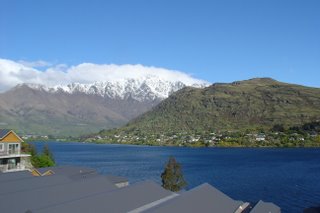The interesting thing in watching the latest round of commerce commission inquiries into Credit Cards and interchange payments is that the issues highly parallel many policy initiatives that Labour has been implementing these terms.
The primary issue with Credit Card interchange fees and the reason they stay high is because there is a behavioural driver towards using the most inefficient method of payment.
To explain (very briefly) - when you pay via Credit Card the charge for using the card (the net revenue) goes to the bank that has issued you with the card. IE you have an ASB Credit Card, when you pay with it ASB Bank makes money, and the bank that the merchant you are buying from actually loses money. When you pay via EFTPOS however it is the
opposite way around - you pay with your ASB Bank EFTPOS card the ASB Bank loses a transaction fee to the merchant banking operation. In both cases the transaction switch (ETSL or EFTPOS NZ) takes a cut, but this can be seen as net zero across a comparison of transaction type.
So the issuing bank has a direct incentive to have you pay via the Credit Card, and not your EFTPOS card; which is why you get reward points on your Visa purchases, and pay transaction fees on your ETFPOS purchases. This is despite there being less parties involved in the EFTPOS transaction (no VISA / Mastercard to take their cut), and the overall system actually being cheaper and more efficient.
So as a consumer presented with the skewed information that we have at our fingertips it seems that we are better off paying via our Credit Card; and as an individual we are. However systemically this leads to higher prices, and in net terms we actually end up losing out as the amount we are paying for the goods includes a higher and higher percentage of averaged transaction cost rather than actual good / service provision.
Now apply this to the policy initiatives that Labour has used, particularly in the recent term:
WFF incentivises the premature forming of a family unit, particularly where an individuals wages / salaries are expected to rise over the medium term.
Stepped income tax brackets increases the incentive to use and retain lawyers / accountants increasing transaction costs rather than actual good / service provision.
Tax free student loans encourage borrowers to borrow as much capital as possible, and take the longest possible time to pay back - on the first major debt commitment they are ever likely to have.
Capital Gains initiatives encourage the diversification of a persons portfolio to be reduced, tending towards a maximum diversification across Australasia.
There are many more examples that they have given recently - take the time to think critically about the effects of your Governments policies - both in terms of what behaviour that encourages in terms of being beneficial to the individual, and whether the net effect is just an increase in fiscal drag on the economy.

